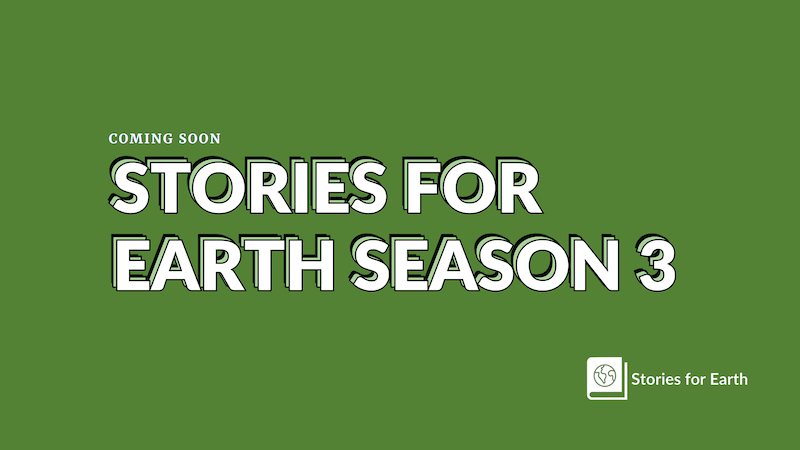Stories for Earth relies on contributions from our listeners and readers to produce high quality, in-depth content. If you buy something using the links on our website, we may earn a small commission, at no extra cost to you. For more information, see our Affiliate Disclosure.
This is a podcast about the greatest story ever told. It’s actually a story that’s being told because we are all living through it right now, and we will be for the rest of our lives. I’m talking, of course, about the climate emergency.
But the tricky thing about stories unfolding in real time is that we can’t see the whole picture yet. Remember, we’re all characters in this story, and none of us have a narrator’s God’s-eye-view of what this all means or what happens next. So what do we do? We tell stories ourselves to make sense of this muddled reality. We write novels. We program video games. We direct films. We sing songs.
We have so many ways of telling stories, and I believe that paying attention to some of the best ones can help us as we try to navigate the bigger story, the climate story, in our own lives. We’ve already talked about some incredible stories on the show. Last season, we started out by talking about one of the greatest video games ever made, Final Fantasy VII, a tale of an ecoterrorist organization that must persevere against all odds in the fight to save the planet.
The current US Poet Laureate Joy Harjo spoke to us through poetry about what it was like when her people could hear the songs of plants, and why it’s imperative that all of us learn how to hear them now. A farm girl from South Korea showed just how far people will go to save the ones they love and how creating the world we want might just start with how we engage with capitalism.
In her novel Weather, Jenny Offill taught us how a New York City librarian narrowly avoided becoming a doomer by learning to always look for the obligatory note of hope. A heavy metal band from Australia painted a vivid and terrifying audio picture of what kind of future we might expect if we don’t drastically change course immediately.
My friend from across the Atlantic and I had a makeshift therapy session with each other to process the eon-level view of life on this planet from The Overstory by Richard Powers, and Amitav Ghosh, one of the most eminent writers on literature and the climate crisis, took us on a journey through the history of world literature to show us how modern literature is failing to address climate change and what must be done to change that.
This August, we’ll embark on another journey through stories in all forms to discover what they can teach us about living in an age verging on climate chaos. We’ll see how those least responsible for climate change suffer the worst consequences through heartbreaking novels like How Beautiful We Were by Imbolo Mbue.
We’ll consider the story of a lone robot left to clean up the mess humans left on Earth while they rocket through space in search of a new planet to inhabit. We’ll find inspiration from a brave young princess in an imaginary world as she struggles to simultaneously prevent a war and save the planet. And we might just revisit one of the first major Hollywood films ever made about climate change.
It’s going to be a powerful exploration into the different stories that can help us better understand the real-life story of climate change, and I hope you’ll tag along. Our first stop is coming up shortly through a discussion on How Beautiful We Were by Imbolo Mbue. Thank you for listening, and I look forward to seeing you then for the first episode of Stories for Earth Season 3.
Never miss an episode
Subscribe wherever you enjoy podcasts:
